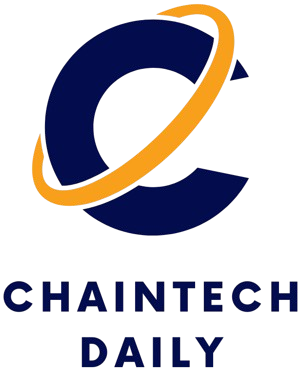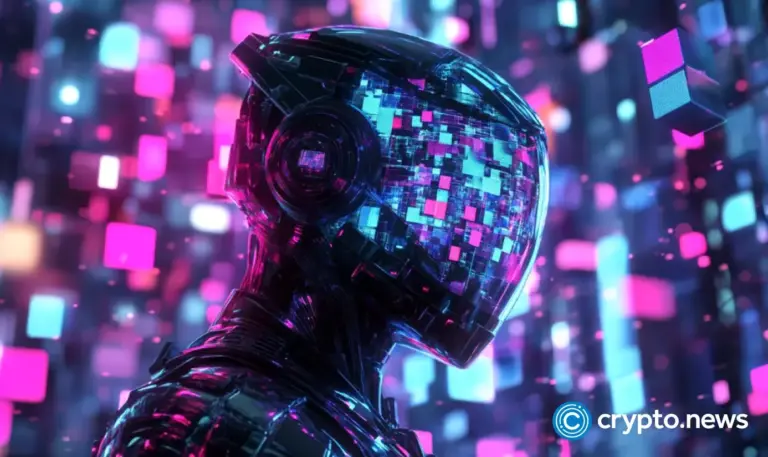Disclosure: The views and opinions expressed here belong solely to the author and do not represent the views and opinions of crypto.news’ editorial.
On the surface, AI and blockchain share a lot in common. Both are transformative technologies with the potential to reshape every industry they touch. Both have attracted vast amounts of investment, not to mention hype. And both are blunt tools whose full power is only manifested when they’re astutely sharpened and wielded with precision.
When AI and blockchain are intelligently combined, they can achieve wondrous things. AI makes the marginal cost of intelligence effectively zero, and blockchain makes the marginal cost of coordination effectively zero and therefore abundant. Intelligent autonomous systems. Verifiable frameworks for data tracing and content attribution. Circular economies for allocating digital resources. But that’s not all the pair brings to the table. When blockchain is judiciously combined with artificial intelligence, it has the ability to address the latter’s most concerning flaws. Because make no mistake, AI in its current form is riddled with them.
Who do you trust?
Artificial intelligence is rapidly revolutionizing industries, from automating mundane tasks to elevating customer experiences. Yet, as AI embeds itself deeper into critical decision-making, from healthcare to transportation, transparency and accountability alarms ring loud. Bias, manipulation, and opaque decisions threaten to erode trust in AI, undermining its vast potential. This is where blockchain has a chance to shine. With a decentralized, immutable ledger serving as the foundation for truth, AI can be imbued with the verifiability and ethics it’s currently lacking. Blockchain brings trust to a technology that is currently bereft of it.
AI bias is like climate change: everywhere and yet nowhere. Impossible to refute, but often hard to put a finger on. Occasionally, the flagrancy is blatant, such as Google’s Gemini tool producing wildly inaccurate historical images. More often, though, all we have is a sense that something is off with no ability to easily prove it, let alone address it (just a few weeks ago, for instance, Deepseek R1 claimed Trump was America’s previous president). And let’s not even get started on “alignment faking,” in which AI purports to please while covertly maintaining its own agenda.
Beyond bias, backdoor attacks pose a graver threat. Malicious actors can embed hidden triggers during training, causing AI to misbehave—say, misclassifying images with specific patterns—when activated. Such vulnerabilities risk compromising systems in real-time, with no easy fix. It’s telling that as AI becomes more human, it inherits our worst habits—including the ability to deceive and then, when pressed, to double down on the lie.
It’s one thing for an AI to screw up with image generation; another for an autonomous driving algorithm to ignore a stop sign. And that’s not even the worst that can happen when AI goes wrong.
A high-stakes game
In safety-critical fields like aviation and robotics, trustworthy AI is non-negotiable. Aviation increasingly relies on AI for air traffic management, predictive maintenance, and autopilot systems. A misstep here due to a biased or hacked algorithm could be fatal. While AI excels at predicting mechanical failures, saving billions in downtime, its reliability demands oversight. AI diagnostic tools in aviation can falter, misinterpreting data if trained on flawed sets. Public safety hinges on transparent, accountable AI—without it, trust and lives are at stake.
When motorcars were first invented, accidents weren’t uncommon but were rarely fatal due to the low speeds and paucity of vehicles on the roads. But once the automobile industry got up to speed and engines became more powerful, safety measures were needed to reduce traffic accidents. AI is currently at the Model T stage: a game-changer, but one whose final form has yet to be realized. Once artificial intelligence shifts into gear and comes to be embedded everywhere, the risk of failure or bias multiplies exponentially. Which is why now is the time to act to fix AI’s flaws—and it’s here that blockchain can prove invaluable.
Accountability as a service
Blockchain brings accountability to artificial intelligence. Its decentralized, immutable design can record training data, model parameters, and decision logs, enabling independent verification of AI’s integrity. With every step taken by a model—data inputs, training cycles, outputs—it’s auditable by anyone and incapable of hiding behind the secret sauce that is opaque algos, aka the proverbial black box.
At present, blockchain does this job with our money, providing a record of truth that enables billions of dollars to be transferred every day with deep trust thanks to its public verifiability. This same transparency can ensure AI models aren’t tampered with and allows tracing of erratic behavior back to its source. It’s not about manually checking every single AI action: it’s about having the ability to do so. When everything is verifiable, nothing is concealed.
In decentralized systems, multiple nodes can validate the actions of AI agents, spotting anomalies such as bias, backdoors, or glitches via consensus, much like blockchain secures cryptocurrency networks. If an AI acts unpredictably, nodes can flag and replace it, ensuring real-time correction. This fusion of decentralized AI and blockchain builds a robust framework for trust, turning opaque “black box” models into transparent, verifiable systems.
Don’t forget the governance
There’s another thing that blockchain does very well in the context of AI, which we’ve yet to address: governance. AI without proper governance risks running rogue, making untraceable decisions that swerve scrutiny. Blockchain counters this with a decentralized governance structure that’s accountable and (there’s that word again) verifiable.
Smart contracts can encode ethical standards, enforcing fairness and transparency in AI development. They can mandate unbiased training data or flag non-compliance, halting a model’s deployment until fixed. Blockchain also empowers stakeholders such as developers and users to participate in governance, voting to shape AI’s rules. This collective oversight curbs autonomous overreach, fostering accountability where traditional systems fall short.
A symbiotic relationship
While blockchain is the ideal technology to fix AI’s most egregious flaws, it’s a relationship that works both ways. Artificial intelligence, in turn, is making the onchain universe a safer, more efficient, and ultimately more profitable place to work and play. But that’s another blog for another time. What matters in the here and now is that if AI is to fulfill its full potential, it doesn’t just benefit from blockchain—it needs it. Otherwise, all of the issues that come bundled with AI—bias, backdoors, and opaque algorithms going haywire, threaten to derail progress.
By logging AI’s inner workings on immutable ledgers, blockchain tackles bias and manipulation head-on, while in high-stakes arenas like aviation, it bolsters safety and confidence. If AI is the watcher, scanning our databases and analyzing our systems, blockchain is the watcher that watches it. AI makes the world a better, more intelligent place. And when its actions and inputs are recorded on the blockchain’s immutable ledger, it also makes it a fairer and more open one.



